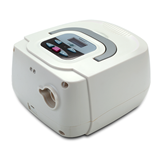But Industry Professor in the Faculty of Engineering and Information Technology Barry Drake wants evidence.
That’s why he’s heading up this project as part of the Digital Intelligent Systems for Health (DISH) initiative. It’s a new network of UTS academics, led by Barry and co-convened by Distinguished Professor of Public Health Elizabeth Sullivan. They’re committed to transforming health systems through the application of smart algorithms, data science and systems-wide thinking.
DISH aims to improve patient outcomes, increase evidence-based decision-making in our healthcare system and boost cost efficiency.
Alongside the NSW Health ED project, DISH is showcasing a range of big data projects including ones that seek to tailor treatments for childhood leukaemia, prevent cyberbullying, and improve accident recovery trajectories.
The aim of the showcase is to ignite the imagination of industry partners to the possibilities of combining their data with cutting-edge technology and UTS expertise.
“Many people in health, including my customers, are very interested in being able to anticipate negative outcomes for patients, things like unexpected hospital admissions or deteriorating health.”
Barry hopes to use the data to develop systems that identify which patients may be at risk of an adverse outcome and help healthcare workers intervene before it’s too late. Often, he says, “these interventions are quite cheap and easy, so the patient gets a better outcome and the resources that would have been taken up are actually freed up for someone who really needs them.”
For Barry, “This is one of the good things about UTS – it has a real emphasis on the impact of your work, social justice and engaging with people outside of the university. Peer review is very important, of course, but to have a real impact, your research needs to be translated into practice.”
Want to comment on this topic? Click 'Have Your Say' and add your thoughts.










